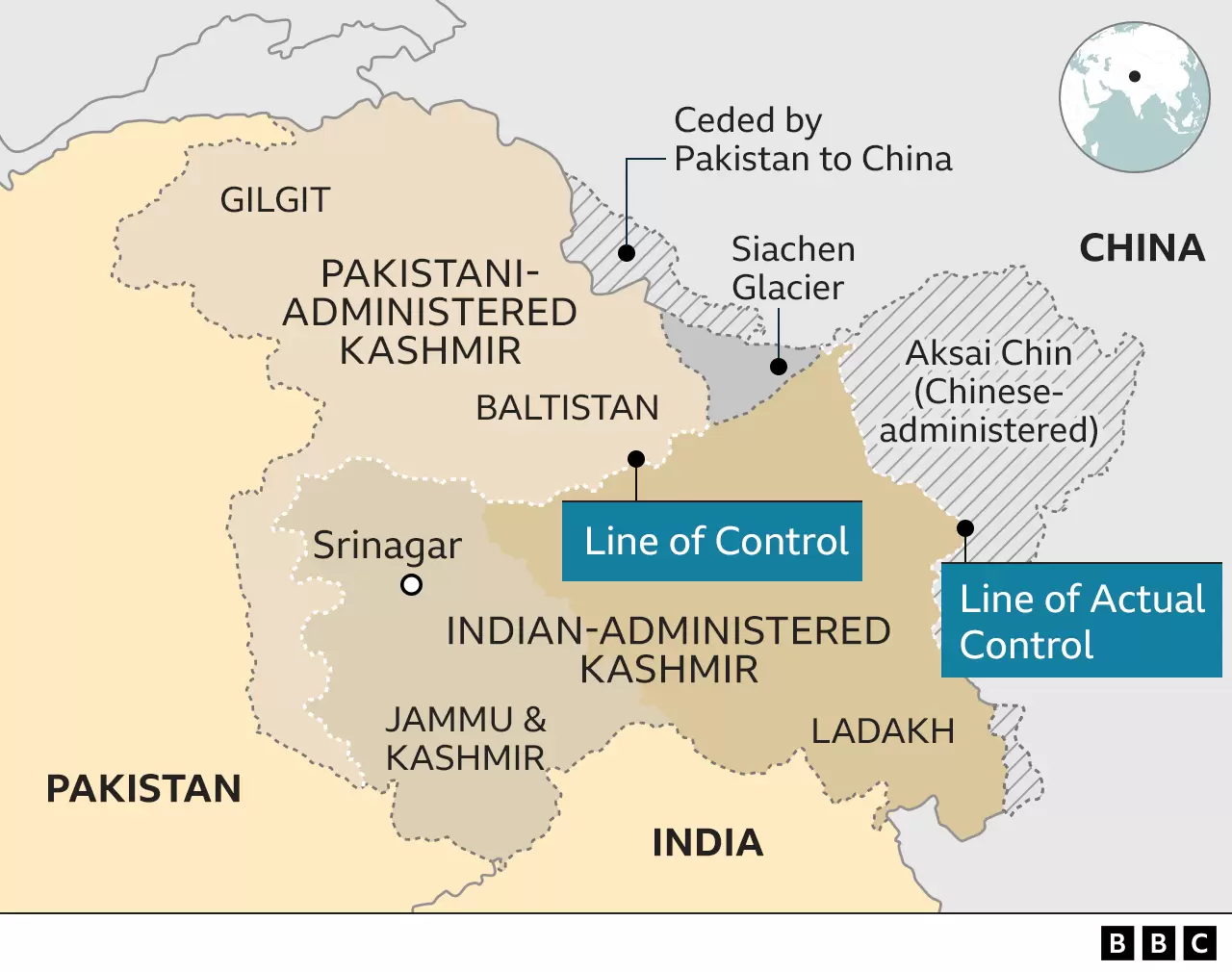Mar. 12, 2024 ❧ TikTok ban, Gaza at the Oscars, and Florida roasts its workers alive
Plus: Video game workers on strike, Modi in Kashmir, Katie Britt's State of the Union lies, and a diving spider
And the award for “Best Biweekly News Briefing” goes to…
BIG STORY
TIKTOK MIGHT ACTUALLY GET BANNED
Congress may be on the verge of banning TikTok, the second most popular social media app in America. Late last week, the House Energy and Commerce Committee unanimously approved a bill that would remove the Chinese-owned app from US app stores over claims that the Chinese government could use it to collect Americans’ data.
Though the effort to ban TikTok has primarily been spearheaded by Republicans fearful that it is turning kids trans and making them worship Osama bin Laden, President Biden has signified that he would sign a ban, which could be on his desk as soon as Wednesday morning.
Meanwhile, after supporting ban efforts in the past, Donald Trump abruptly changed his tune (presumably to this song) over the weekend, coming out in defense of TikTok. “Frankly, there are a lot of people on TikTok that love it,” Trump said. “There are a lot of young kids on TikTok who will go crazy without it.” He also added that it could increase the popularity of Facebook, which is “an enemy of the people, along with a lot of the media.” (Of course, we all know the real reason is that the app made a trend out of his tremendous dancing skills.)
It remains to be seen whether Trump’s sudden change of heart will lead Republicans to kill this TikTok ban as they did with the border bill last month.
At any rate, the singling out of TikTok for a ban is based more on speculation and paranoia than any confirmed acts of malice by the Chinese government using Americans’ data. While there are laws in China allowing the government to demand data collected by private companies, there is no evidence this has been used against Americans. If China wanted to steal Americans’ data, there are plenty of other ways they could get it. As Mike German, a former FBI agent and Brennan Center fellow, pointed out in an interview with Al Jazeera,
When somebody puts the TikTok app on their devices, it’s known to collect certain information about the user just as any other app made by a company based in the United States. To the extent that a hostile foreign power could get access to that information, I’m sure there’s some use they could make of that information. But why wouldn’t they just buy it on the open market like the American government does?
While we have no evidence of the Chinese government using TikTok to spy on Americans, the United States government openly acknowledges that it buys Americans’ social media data from private companies with virtually no oversight. This should be much more worrying to Americans than whatever China is doing because unlike China’s, the US government can actually use your private information to arrest you.
Banning TikTok has been bandied about as far back as 2020 over these concerns. Why is the effort gaining bipartisan support now? An undeniable shift occurred at the outset of Israel’s war with Gaza, which lawmakers accused of harboring a pro-Palestine bias. As a video-sharing platform, it became a place where people could view and share the often horrific footage from the war with little oversight or censorship. It also allowed people on the ground to directly live-stream their experiences of the war and connect directly with millions of viewers. While congresspeople accused TikTok of having a nefarious agenda to turn the nation’s youth into Hamas supporters, it seems far more likely that witnessing a deluge of footage of children being starved and refugee camps being bombed naturally led many of the app’s users to empathize with Palestinians.
There is a chance that TikTok will not be banned. The current bill would allow the company that owns TikTok, ByteDance, to continue operating in the US provided it sells its American operations. It could also be held up by the courts on First Amendment grounds: this happened when Montana attempted a statewide ban.
But if TikTok is indeed banned, it will have little to do with Americans’ safety or privacy. Rather, this is about the government’s desire to control the free flow of information and censor what perspectives and information Americans are allowed to see.
THE CURRENT AFFAIRS NEWS BRIEFING IS ON TIKTOK!
FOLLOW US WHILE YOU STILL CAN!

AROUND THE STATES
❧ The Florida legislature has passed a bill explicitly forbidding workplace protections against extreme heat. Whenever you think the Florida GOP has reached a moral and political rock bottom, they somehow surprise you and dig further. This time, the Republican-controlled state legislature has passed something called HB 433, which prohibits any “regulation of heat exposure requirements in [the] workplace” made by local governments. As The Guardian reports, the measure appears to be targeted at Miami-Dade County, which has roughly 300,000 outdoor workers. The county had been scheduled to vote on an ordinance to require employers to provide drinking water, shaded rest areas, and other basic protections for those 300,000 workers’ health and safety. Really, it was the bare minimum anyone could expect—but for state lawmakers, even that was too much, and the proposed ordinance will soon be illegal.
The new Florida law mirrors the United States’ other far-right dystopia, Texas, where Governor Greg Abbott has signed a so-called “Death Star” law allowing municipalities to be sued if they have any workplace regulations beyond what’s required at the state level. Because it’s stupid and cruel, Governor Ron DeSantis will almost certainly sign HB 433 into law when it reaches his desk, and endanger the lives of approximately 2 million outdoor workers across Florida. Last year, one Florida farm worker—Efraín López García, who was only 29 years old—died on the job as a direct result of extreme heat. Across the country, there have been at least 436 such deaths since 2011, and the number will only increase as climate change turns up the temperature on us all. But people like Abbott and DeSantis don’t care. They’re safe in their air-conditioned Governor’s mansions, and the lives of ordinary working people mean nothing to them.

To protect those lives, workers themselves will have to take matters into their own hands—and the effort is already underway. With a growing campaign called “¡Qué Calor!” (“How Hot!”), workers across Southern Florida have begun a series of dramatic public protests for better safety measures, along with boycotts and other pressure tactics directed at the businesses who eventually buy crops grown under unsafe conditions. It’s a good start, but there’s still more work to be done. The Florida government has proven that it won’t help anyone by choice. Now it’s up to the working class to build power of its own, and force it to change.

❧ Video game workers at Activision have voted to unionize. Out of roughly 600 workers in the quality-control division at the company—which is owned by Microsoft—the New York Times reports that 390 of them have voted in favor of a union drive, while around 200 abstained. Activision is hugely lucrative, responsible for bestselling games like Tony Hawk’s Pro Skater and the Call of Duty franchise; in October of last year, Microsoft acquired it for a price of nearly $69 billion. But like a lot of the gaming industry, workers at Activision have been plagued by “crunch”—periods where they’re expected to work long hours without rest, in order to finish and release a game by a certain deadline. (While working on Call of Duty: Black Ops 3, for instance, workers say they often had 14-hour shifts and stayed up until 3 AM.)
The 600 Activision workers are now represented by the Communications Workers of America, whose Campaign to Organize Digital Employees (CODE-CWA) has targeted the games industry as a whole in the last few years. Last January the CWA had its first success organizing around 300 workers at ZeniMax Media—which makes the popular Elder Scrolls and Fallout role-playing games and is also owned by Microsoft. It’s a positive sign in an industry notorious for its labor abuses, and a model workers at other companies can copy. Possibly the biggest targets for future organizing would be Electronic Arts, whose culture of extreme “crunch” first brought the issue into the public eye more than 19 years ago, and the multinational Ubisoft, which made $885.2 million in the first half of 2023. If we worked at any of those companies, we’d be making a call to the Communications Workers of America yesterday.

❧ At Sunday night’s Oscars, The Zone of Interest took home the award for Best International Feature. The film is a haunting study of how Rudolf Höss, the commandant of Auschwitz, constructed a lush villa complete with a swimming pool and a garden (“a paradise of flowers,” he called it) for his family just outside the walls of a concentration camp where more than a million Jews were murdered.

As ceasefire protests raged outside the Academy Awards, obstructing traffic and preventing some stars from arriving on time, the film’s director Jonathan Glazer took the opportunity to note the parallels between the subject of his film and the ongoing destruction of the Gaza Strip by Israel. In his acceptance speech, he said the following:
All our choices were made to reflect and confront us in the present — not to say, “Look what they did then,” rather, “Look what we do now.” Our film shows where dehumanization leads, at its worst. It shaped all of our past and present. Right now we stand here as men who refute their Jewishness and the Holocaust being hijacked by an occupation, which has led to conflict for so many innocent people. Whether the victims of October the — [Applause.] Whether the victims of October the 7th in Israel or the ongoing attack on Gaza, all the victims of this dehumanization, how do we resist? [Applause.] Aleksandra Bystroń-Kołodziejczyk, the girl who glows in the film, as she did in life, chose to. I dedicate this to her memory and her resistance. Thank you.
While words can only do so much in the face of unrelenting slaughter, this was about as piercing and morally clear a statement as Glazer could have given. Glazer is a Jewish director who studied the Holocaust intimately to create the film, which adds a level of authority to his criticism of those who exploit the memory of the Holocaust as a justification for the Israeli government to commit its own acts of genocidal violence.
We can tell the statement was impactful because of how the defenders of Israel’s military campaign responded: by lying shamelessly about what he said. Everyone from Newsweek editor Batya Ungar-Sargon to former ADL leader Abe Foxman, to Meghan McCain to the writers of Variety Magazine, and numerous others ripped the phrase “as men who refute their Jewishness” out of context to falsely suggest that Glazer was somehow disavowing his own Judaism, rather than the “hijacking” of his identity and the history of Jewish persecution to justify atrocities.


There is no other description for this than malicious defamation. And it led to attacks from Zionists on Glazer’s Jewish identity: Blogger Hillel Fuld called him a “self-hating Jew” while Rabbi Shmuley Boteach accused him of “betraying his people.”
This would already be offensive enough—Jewish people should be allowed to have whatever opinions they want about Israel. But Glazer’s view is actually more in line with the views of American Jews than his detractors—more than half of Jewish Americans support a ceasefire in Gaza according to polling by the Institute for Social Policy and Understanding. With this in mind, the attempts to shame Glazer appear like a show of pathetic desperation.
AROUND THE WORLD
❧ Narendra Modi, the Prime Minister of India, made a high-profile visit to Kashmir last week. It’s the first time Modi has set foot in Kashmir since 2019, when his government severely curtailed the rights and autonomy of its people. For context, Kashmir is a large and hotly-disputed territory situated between India, Pakistan, and China, all of which claim various portions as their own. Until recently, the India-controlled portion operated as a semi-autonomous state, complete with its own laws, flag, and constitution. That all changed in 2019, when Modi and the ruling Bharatiya Janata Party (BJP) revoked Article 370 of the Indian constitution, ending Kashmir’s semi-sovereign status and imposing direct rule from New Delhi.
Since then, the Indian government has committed a litany of human rights abuses to maintain and strengthen its rule over Kashmir, including arbitrary detentions of thousands of people, communications blackouts, systematic harassment of journalists, and even extrajudicial killings. In particular, Muslim citizens—who make up a majority in Kashmir, one of only two Indian territories where that’s the case—have found themselves on the receiving end of discrimination and violence from Modi’s Hindu nationalist government, with their homes and businesses bulldozed without warning.
When he visited the city of Srinagar last Thursday, Modi tried to paint a rosy picture of Kashmir under Indian rule, announcing new infrastructure projects and saying, “The success story of Jammu and Kashmir will be the center of attraction for the world.” But he’s not fooling anyone. As Al Jazeera points out, Modi’s visit was accompanied by yet another police crackdown on dissent, with “thousands of armed police and paramilitary forces in flak jackets” patrolling the streets, and government employees who attended said that “almost none” did so willingly.
Like with Russia’s invasion of Ukraine or Israel’s occupation of Palestine, no amount of fancy words can hide the brutal fact of military rule, imposed on a people against their will. Like everyone else around the world, Kashmiris have a right to self-determination, and to have a democratic say in what kind of government they want. Until that right is respected, support and solidarity for their liberation—and opposition to Modi and his troops—will be an urgent necessity.

BOOK OF THE WEEK
In Kashmir: The Case for Freedom, Verso Books assembles a team of writers—including Tariq Ali, Arundhati Roy, and Hilal Bhatt—to argue that India’s ongoing military rule in Kashmir is “one of the most protracted and bloody occupations in the world,” and a critically important cause for humanitarians and anti-imperialists everywhere.
“The Indian military occupation of Kashmir makes monsters of us all. It allows Hindu chauvinists to target and victimize Muslims in India by holding them hostage to the freedom struggle being waged by Muslims in Kashmir. It’s all being stirred into a poisonous brew and administered intravenously, straight into our bloodstream. At the heart of it all is a moral question. Does any government have the right to take away people’s liberty with military force?”
- Arundhati Roy
⚜ LONG READ: After losing the support of the United States, which has helped him undemocratically hold onto power for the last two years, Haiti’s unelected president Ariel Henry is stepping down from leadership as the country has descended into a low-level civil war and rampant gang violence. For the Quincy Institute for Responsible Statecraft, Brian Concannon explains how the current crisis in Haiti has been helped along by American meddling in the nation’s politics for decades (NOTE: This article was written prior to the announcement of Henry’s resignation):
This dire situation is not only predictable, it was predicted. Haitian-American officials, Haitian civil society, members of the U.S. Congress, and other experts had been warning for years that the U.S. propping up Henry would lead to increasing tragedy for Haitians. The United States, which installed Henry in power in the first place, ignored these pleas and stood resolutely by its friend. With U.S. support, Henry’s unconstitutional term as prime minister exceeded any other prime minister’s term under Haiti’s 1987 Constitution. Levels of gang violence, kidnapping, hunger, and misery also reached unprecedented levels.
The United States is still insisting on getting Kenyan troops to Haiti. The State Department has persistently — if so far unsuccessfully — tried to deploy non-American boots onto Haitian ground since Henry requested them in October 2022. The mission’s deployment initially stalled because it was widely rejected as a bad idea that will primarily serve to prop up the repressive regime that generated the crisis. Haitian civil society repeatedly insisted that the first step towards security must be a transitional government with the legitimacy to organize elections and determine how the international community can best help Haiti…
Concerns that the intervention would serve only to reinforce an unpopular regime led the countries that the Biden administration first tapped to lead the mission, including Canada, Haiti’s Caribbean neighbors, and Brazil, to pass. The U.N. itself concluded that the mission would require too much “robust use of force” to be appropriate for a peacekeeping mission. So, the Security Council took the unusual step of authorizing the mission, but on the condition that it not actually be a U.N. mission that the organization would have to take responsibility for. The Biden administration, likely concerned about election-year cell phone videos of troops shooting indiscriminately in crowded neighborhoods — as the last foreign intervention did — declined to send U.S. troops for the mission (but is considering deploying a small Marine contingent to Haiti in early March)...
When allowed, Haitians have a history of coming together to make their way out of a crisis. Haiti became a country in 1804 by defeating Napoleon, with almost no outside help. In 1986, when the U.S. finally withdrew its support from Jean-Claude “Baby Doc” Duvalier, Haitians eventually wrested power from the military and held fair elections. In 2006, they voted their way out of the crisis created by the U.S. kidnapping of President Jean-Bertrand Aristide two years before. In August 2021, shortly after the killing of Haiti’s last president, Jovenel Moïse, a broad-based group presented the Montana Accord that would have created a transitional government leading to elections in two years. The U.S. vetoed the accord, citing, among other reasons, that the two-year time frame was too long. That was 30 months ago, and there are no elections in sight.
No amount of submission to U.S. demands by Prime Minister Henry and his predecessors can justify the absolute horror that our support has allowed them to inflict on the Haitian people. It is time for the United States to let Haitians come together and make their way out of the current crisis. Civil society sees an opportunity for democracy in the crisis, and people all over Haiti have been meeting, discussing and negotiating to develop platforms for a broad-based, legitimate transitional government that can hold fair elections. It is expected that soon — maybe within weeks — one of these platforms will rise to the top, and civil society will coalesce around it. The United States needs to let that process happen without interference or conditions.
CROOKS vs. SICKOS (or, “What’s going on with our politicians?”)
❧ In other news from the wide world of people lying about things, Senator Katie Britt (R-AL) was caught telling a whopper this past week during her rebuttal to President Biden’s State of the Union address. Britt was already being widely mocked for her hilariously melodramatic delivery, which sounded straight out of one of those SPCA ads in which Sarah McLachlan implores you to donate $1.99 a day to save dying puppies. And for someone looking to embody the image of the demure American “housewife,” (Tommy Tuberville’s words, not ours) her kitchen looked eerily empty and spotless, as if it were a film set she was using just for this speech.
Our future starts around kitchen tables just like this: completely barren and surrounded by an impossible number of gray cabinets
Somehow, the content of the speech was even more embarrassing. In an attempt to hit Biden over his “open border” policy, she brought up a horrifying story from a Mexican woman who was the victim of sex trafficking by drug cartels. “I spoke to a woman who shared her story with me,” Britt said, “She had been sex-trafficked by the cartels starting at age 12. She told me not just that she was raped every day, but how many times a day she was raped.” She proceeded to blame Biden for what happened to the woman: “We wouldn’t be OK with this happening in a third-world country,” she said. This is the United States of America. And it’s past time we start acting like it. President Biden’s border crisis is a disgrace.”
Former AP journalist Jonathan Katz discovered that this was the story of anti-sex trafficking activist Karla Jacinto Romero, who spoke on Captiol Hill in 2015. According to her testimony, the events took place from 2004 to 2008 (“I don’t know what they put in the textbooks of Alabama these days, but Joe Biden was not the president of the United States in 2004 or 2008,” Katz said.) And while Britt states that these crimes were enabled by lax border enforcement, Romero’s testimony revealed that they happened entirely in Mexico. Katz concluded:
“It seems very clear to me that she is trying to create an association in people’s minds between Joe Biden, the border, Mexicans, you know, Latins – people of Latin descent – and sexual violence. That’s what she’s going for and she is doing it on the basis of something that you can only say is an out-and-out lie.”
SPIDER FACT OF THE WEEK
The incredible “Diving Bell” spider lives almost entirely underwater!
(Note: For anyone who suffers from arachnophobia, we’d recommend looking away now. Sorry.)
This particular spider, known to science as Argyroneta aquatica, is unique among arachnids. Its legs and abdomen are covered with tiny hairs that allow it to trap bubbles of air and bring them underwater, where it lives. Instead of spinning a traditional web, the spider creates a “diving bell” full of air, where it eats, sleeps, lays eggs, and carries out all its other spidery business.
In fact, it only leaves the water to get more air bubbles, or to hunt small insects and drag them back home. These spiders have a remarkably wide range, living throughout most of mainland Europe and as far south as Iran; they’ve even been featured on a postage stamp from Azerbaijan!
Writing and research by Stephen Prager and Alex Skopic. Editing and additional material by Nathan J. Robinson and Lily Sánchez. Header graphic by Cali Traina Blume. Fact-checking by Justin Ward. This news briefing is a product of Current Affairs Magazine. Subscribe to our gorgeous and informative print edition here, and our delightful podcast here.
Current Affairs is an independent left media organization supported entirely by its readers and listeners. We offer a beautiful bimonthly print and digital magazine, a weekly podcast, and a regular news briefing service. We are registered with the Internal Revenue Service as a 501(c)(3) nonprofit organization with EIN 83-1675720. Your gift is tax-deductible to the extent allowed by law. Donations may be made through our website, via wire transfer, or by sending us a check. Email help@currentaffairs.org with any questions.















